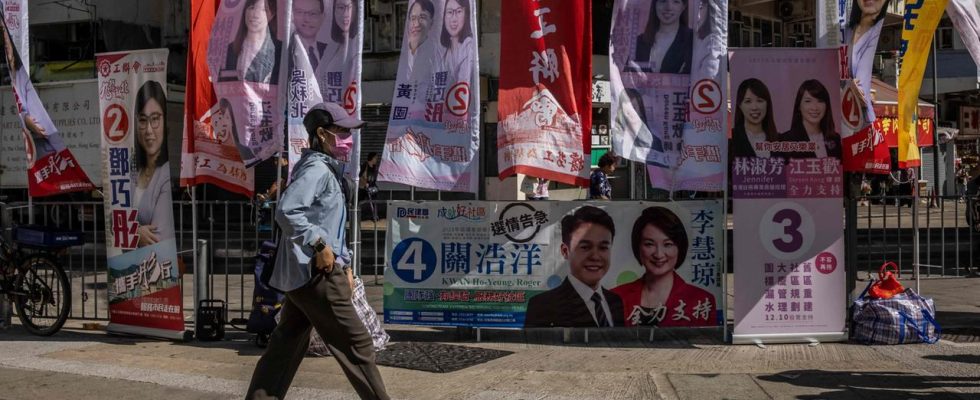The “national security law” enacted after the mass protests in Hong Kong in 2019 is having an impact: turnout in the local elections was at a record low. Opposition candidates were not allowed.
In the first district council elections in Hong Kong since a change in electoral law implemented by Beijing, fewer people voted than ever since the former British colony was returned to China in 1997. Around 27.5 percent of the approximately 4.3 million eligible voters took part in Sunday’s ballot , according to official data. In 2019, at the height of the anti-government protests in the city, voter turnout was 71.2 percent.
At that time, the pro-democracy camp celebrated a landslide victory, which observers saw as a clear expression of displeasure with the government’s harsh crackdown on demonstrators. The district council was considered the last political representation that was still predominantly elected by the people.
Electoral law eliminates opposition
Since then, Beijing has passed a new “national security law” that allows the Hong Kong authorities to take draconian action against democracy activists and other critics. The electoral laws were changed in order to weed out all undesirable candidates in advance. According to the new regulations, of the 462 seats in the district councils, only 88 will be directly elected. The remaining 382 seats are held by the Hong Kong government loyal to Beijing or groups close to it.
All candidates were also checked in advance by election committees for their “patriotic sentiments”. All candidates from pro-democracy parties were excluded from the election. Hong Kong’s largest pro-democracy party – the Democratic Party – was not represented in the district council elections in the special administrative region for the first time since its founding in 1994. Many prominent pro-democracy activists have also been arrested or fled the territory.
“Meaningless choice”
Many voters rejected the ballot, which they perceived as undemocratic: “You can see that everyone has the feeling that the election is meaningless,” says Lemon Wong, one of the few remaining Democrats still active in local politics. “Even establishment supporters wonder why they should vote, it’s all the same.”
It is expected that after Sunday’s election, forces loyal to Beijing will now be able to control the district council. Initial results suggested that parties close to the government won most of the directly elected seats.

